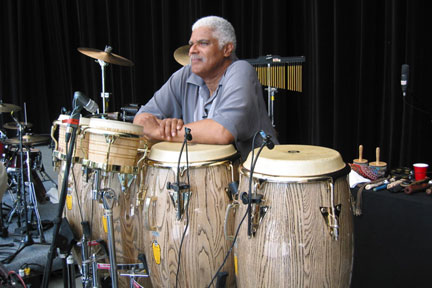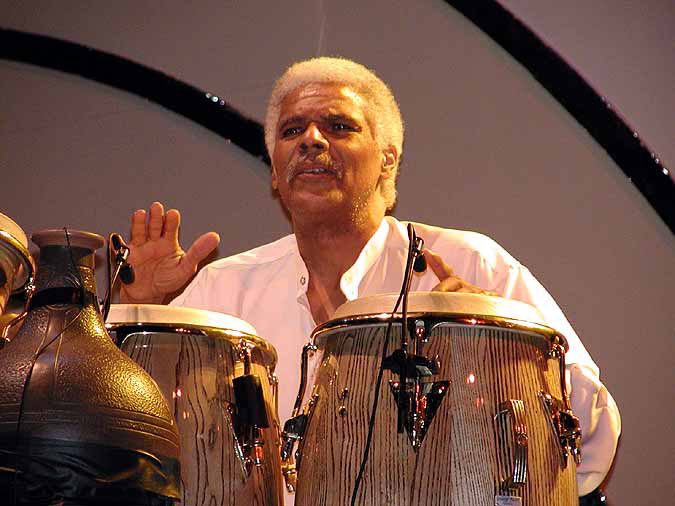A musician is known for their style and approach to what he likes doing. Who better to prove this than Don Alias? This is one of the best drummers the world has ever seen. This percussionist remains a famous figure for his role at the vanguard of the fusion movement. He explored both rock-jazz scenes by contributing to industry-changing gigs under Miles Davis and Joni Mitchell.
Don Alias is one drummer who will always remain a light in the path of young and upcoming musicians, unto even the old. Alias was born in New York City on December 25, 1939, to Caribbean immigrants. He grew up in Harem, where he learned from the works of Cuban and Puerto Rican hand drummers. That is where Alias picked his passion for drumming.

When he joined high school, Alias played the conga alongside the Eartha Kitt Dance Foundation. He became so good at the instrument that the musician invited him to the Newport Jazz Festival in 1957. Despite being a good drummer, Alias departed from his musical career for a while to study biology at Erie, PA’s Cannon College.
He then joined the Carnegie Institute of Biochemistry in Boston. But then, he was a frequenter at the local clubs in Boston, in the company of other students from Berklee School of Music, which was not far. It was here that he met conguero Bill Fitch and bassist Gene Perla. Alias also worked with another trio featuring Chick Corea on the guitar and Tony Williams playing drums – he was on the bass.
Gene Perla later joined Nina Simone, and he convinced the singer to bring Alias on board to take the drums. Alias then landed his gig with the musician. For the three years that followed, he served as the musical director, which caught the eye of the legendary trumpet player, Miles Davis.
Simone had regularly shared festival bills with him. Alias was hired as an auxiliary percussionist for David’s 1969 sessions, giving birth to his masterpiece “Bitches Brew.” It was Alias who crafted the syncopated rhythm in “Miles Runs the Voodoo Down.” At the end of this album, Alias continued to support Davis for one more year on tour before rejoining Tony Williams in 1971 as he worked on his LP Ego.

For the next several years, Alias worked as a hired gun, working on different projects, including the classic debut of Jaco Pastorius in 1976. And then he came back to settle in New York City, rejoining Perla to create an Afro-Cuban fusion group called Stone Alliance. Steve Grossman joined them on the saxophone to release a few LPs.
Alias then teamed up with Joni Mitchell in 1976 to work on “Don Juan’s Reckless Daughter”. This was the first in the series of jazz-oriented works that included “Mingus” of 1979. He continued working with several other leading musicians to establish an era of new jazz music. Don Alias spent the remaining years on a busy schedule until his sudden death on March 28, 2008, at home in Manhattan. His work lives on today.


